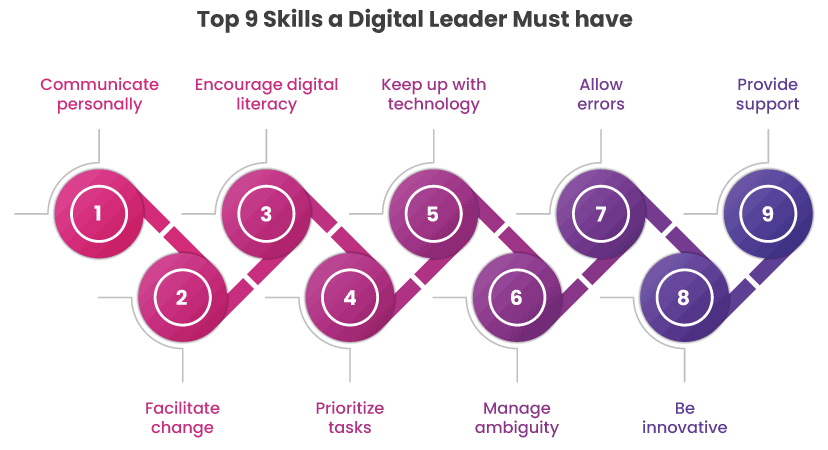
This article was first published on Nasscom Community.
The COVID-19 pandemic has created serious disruptions to both public and private sectors throughout the world. It has forced businesses to undergo digital transformation that most of them would have avoided for another few years if it wasn’t for the pandemic.
For instance, ICICI Bank has introduced a full digital banking platform for its retail and commercial customers – this is a 24-hour service that provides 100% of banking services online. It can be used to avoid visiting a bank branch. 80% of the bank’s digital services were available already but the other 20% was solely implemented to provide customers with essential banking services amid covid.
True, digital transformation makes it simple for businesses to align their operations with changing customer behavior. However, undergoing this shift within the organization is not easy in the first place. Part of the cause is a lack of experience needed to choose the correct tool and train employees on how to utilize it.
Talking about transformations, it is not just the workings of the organizations that have changed, there is a major shift in the roles of the leaders as well. Because digital has transformed industries, competition, and business models, a new type of leadership – digital leadership – is required to steer businesses through the digital economy’s shift from analog to digital.
This new type of leadership necessitates a new type of skillset and we have compiled the top 9 digital leadership skills a digital leader must have in 2024 in this article.
But before dwelling on that let us first quickly learn what digital leadership is and what’s its role?
Simply put, Digital leadership is the discipline of steering an organization toward digital transformation so that it can remain competitive and adaptive in the quickly changing digital and social media ecosystem. The major role of a digital leader is to lead the organization in adapting the digital change and connecting technology to the marketplace as well as the organizational business and culture.
Also read: Digital Leadership in a New Era and How Workplace Culture Matters More Than Ever
Top 9 Skills a Digital Leader Must Have
Here’s a list of skills that digital leaders must adopt to lead an organization successfully during these changing times:

1. Communicate personally
The digital world has enabled us to stay connected with our team 24/7, every single person in your team is literally just a few clicks away. It has given us a plethora of tools to communicate with our workforce such as text, emails, chats, video conferences, etc.
However, work communications tend to be impersonal and it keeps your workforce from sharing the problems or confusions they must be facing due to technological advancements.
According to an MIT survey of best practices for remote teams, communication was considered to be the most crucial factor to success. Communicating with your team on a personal level will help them feel connected with the organization and will encourage them to share their doubts about the present-day working of the organization.
2. Facilitate change
It is a fact that digital transformation is new to everyone in the organization but it is certainly not difficult for all. The tech-savvy generation will easily adapt to this change but the “non-digital natives” might find it extremely difficult to adjust themselves to it.
As a digital leader, you must facilitate this change and make sure that no one is left behind. Conducting proper training, regularly reviewing work, and providing resources to better understand workflow could be some of the ways to make changes easier to adopt for the workforce.
Also read: 7 Traits of Successful Digital Leaders
3. Encourage digital literacy
As said earlier, keeping up with new technologies is not easy for the non-digital natives. To make it easy for them, the digital leader should encourage learning of skills required to live, learn and work in the digital era.
Additionally, it is also important for digital leaders to provide necessary tools and practices such as citizen development which allows people not trained in IT to make use of no-code technology that allows making changes in the applications and business processes easily.
4. Prioritize tasks
The new-age digital world has enabled us to do anything from anywhere. However, as wonderful as it can be for individuals, it is not that great for the organization as a whole.
The ability to do anything anytime has bestowed professionals with a high degree of freedom. And with that freedom individuals often forget to do important work on time.
A survey from Stanford suggested work from home can increase productivity. However, leaders driving digital transformation must make the work priorities clear to individuals so that the organization’s progress is not hindered.
5. Keep up with technology
To keep the workforce motivated to accept digital transformation, it is important for digital leaders to stay ahead of their learning curves as well.
Digital leaders must have a proper understanding of the technologies the organization is going to use to track the results of their initiatives.

6. Manage ambiguity
We are living in uncertain times with no clarity of what will happen next. Therefore, successful digital transformation requires digital leaders to develop the skills to make decisions with incomplete information.
They should also be able to figure out all the possible outcomes of a certain business decision and have contingency plans in place.
However, Being clear on what is known and what is not going to get affected is equally important.
Also read: Digital Transformation Demystified !!
7. Allow errors
Consumer behavior is evolving faster than ever, predicting everything about it is beyond impossible. Therefore, committing mistakes is natural.
A great digital leader allows their employees to make errors. He should ensure that his employees don’t hesitate to try new things and that they understand that making mistakes is fine as long as the company doesn’t suffer big consequences.
It is also important to establish feedback practices so as to learn from the mistakes.
8. Be innovative
Practice what you preach!
A digital leader will not be able to lead by example if he is unable to create, experiment, and use unconventional methods. According to digital transformation statistics released by Forbes, 60% of companies that have undergone a digital transformation have created new business models.
A digital leader must be willing to try new management techniques that fit and work well in the new working environment.
9. Provide support
The lack of expertise and inability to keep up with technology can result in anxiety and fear of being left out in employees. A digital leader should be able to recognize these fears and help employees cope with them.
A survey from MIT suggested that 29% of employees are likely to praise steps taken to foster mental wellness. Figuring out the areas that employees find challenging and providing support for the same is critical to effective digital leadership.
An effective digital leader is one that delegates responsibility, encourages employees to innovate, and evolve during changing times. It is crucial for the leader to create an environment where the people of the organization embrace this change and develop an understanding of how it affects the business structure.
Takeaway
Digital transformation is coming for your organization whether you like it or not. However, a strong digital transformation strategy and effective digital leadership skills can make adapting to this change easy for any organization.
Login
Please login to comment
0 Comments
Oldest
















